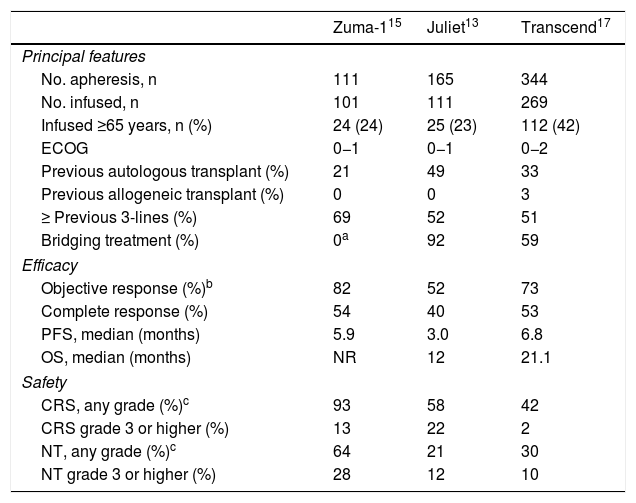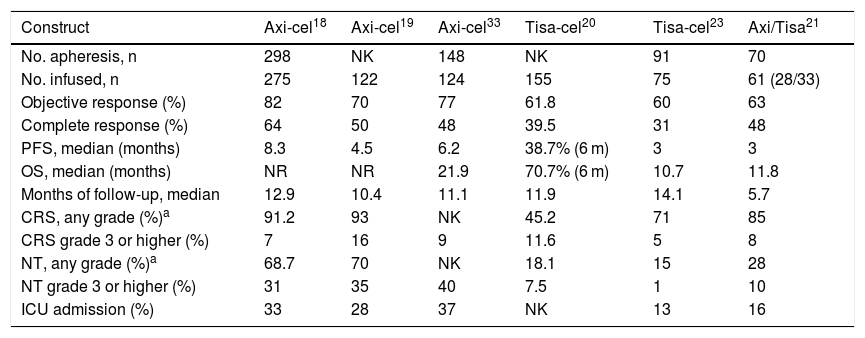Chimeric antigen receptor T-cell (CAR-T) therapy has revolutionized the management of patients with diffuse large B-cell lymphoma (DLBCL) who are refractory or relapse after immunochemotherapy. This strategy consists in genetically modifying the patient's own T lymphocytes to favor the recognition of selected tumor antigens. Currently, we have 2 anti-CD19 CAR-T drugs approved in Spain for patients with DLBCL after 2 or more prior treatment lines and there are multiple ongoing clinical trials exploring earlier lines of treatment. Both clinical trials and post-marketing real-world data have contributed to better define the efficacy and safety profile of each construct, identifying the main prognostic response factors and improving the management of each step in this therapy. All these aspects are reviewed herein.
La terapia con linfocitos T con receptor de antígeno quimérico (CAR-T) ha revolucionado el manejo de los pacientes con linfoma difuso de células grandes B (LDCGB) refractarios o en recaída tras inmunoquimioterapia. Esta estrategia consiste en modificar genéticamente los linfocitos T de los propios pacientes para favorecer el reconocimiento de los antígenos tumorales seleccionados. Actualmente hay disponibles 2 medicamentos CAR-T anti-CD19 aprobados en España para pacientes con LDCGB tras 2 o más líneas de tratamiento sistémico previo y existen múltiples ensayos clínicos en marcha investigando su uso en líneas de tratamiento más precoces. Tanto los ensayos clínicos pivotales como los datos de práctica asistencial post-comercialización han contribuido a definir el perfil de eficacia y seguridad de cada constructo, identificar los principales factores pronósticos de respuesta y optimizar el manejo de las distintas fases de esta terapia. Todos estos aspectos se repasan en esta revisión.
Artículo
Comprando el artículo el PDF del mismo podrá ser descargado
Precio 19,34 €
Comprar ahora









